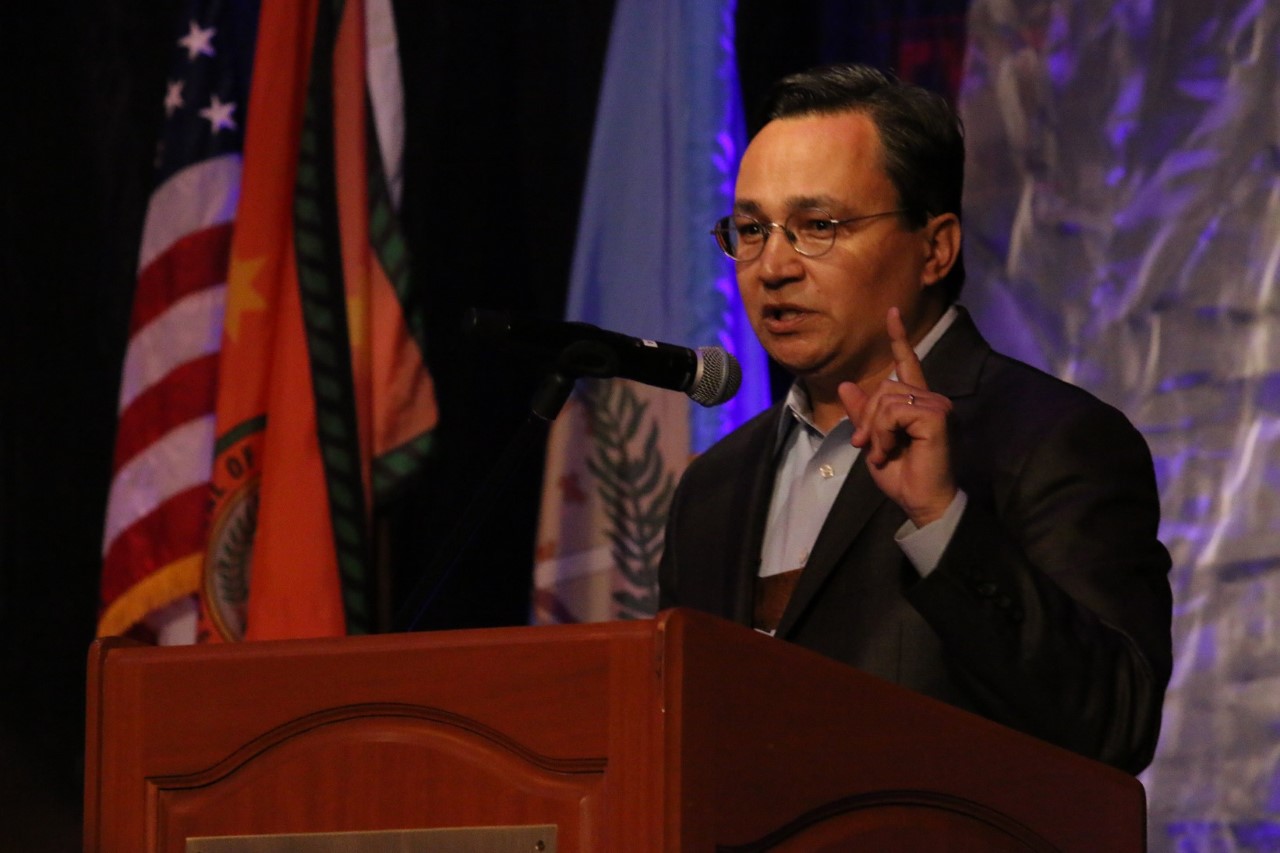
- Details
- By Chuck Hoskin Jr
Guest Opinion. In the modern economy, competition for jobs and investment is fierce. Large, globalized companies come and go in search of a better deal. Especially in rural and small-town America, whole regions of our country have been left behind.
In this economic environment, having a partner deeply committed to a specific place is priceless. For northeast Oklahoma and the entire state, Cherokee Nation is that partner.
The Cherokee Nation arrived here almost 185 years ago, decades before Oklahoma was a state, and made this our forever home. From the beginning, we have invested in long-term growth. We do not outsource jobs or threaten to move our headquarters out of state. We are long-term partners with Oklahoma, a stabilizing force in unstable times.
The newly updated Cherokee Nation Economic Impact Report shows how powerful that partnership has become. This detailed study by the Economic Research and Policy Institute at Oklahoma City University shows Cherokee Nation and its businesses have a more than $3 billion annual impact on the Oklahoma economy. The report finds our businesses and government activities are supporting nearly 19,000 jobs.
As a sovereign government with a nation-to-nation relationship with the United States, we also received billions in additional COVID-19 relief funding during the pandemic emergency. Through strategic management of these funds, the Cherokee Nation was able to ensure employees never missed a paycheck, provide direct assistance to citizens, and support many community organizations. The net effect was an added $2 billion economic impact on Oklahoma, which helped communities get through one of the most difficult and disruptive economic crises in a generation.

The growth and prosperity of Cherokee Nation are an example of history repeating itself. We have seen our hard-earned wealth destroyed and our government and people suppressed, but we have rebuilt time and again. History shows that when the Cherokee people are allowed to govern themselves, great things happen.
As the largest federally recognized tribe in the country, Cherokee Nation is committed to growing the economy, lifting our citizens and helping our friends and neighbors. Cherokee leaders in business and government have forged numerous partnerships to bring quality jobs, expanded services, better infrastructure and health care access to our 7,000-square-mile reservation.
We remain the market leader in entertainment and hospitality, and we have grown our federal contracting and other business ventures for a diverse, sustainable economic portfolio. We proudly reinvest our profits in services and facilities that make Oklahoma a great place to live and raise a family, for both Cherokees and non-Cherokees.
We also know we are strongest when all Cherokees have opportunities to bring their gifts and ideas forward. That’s why we recently partnered with The University of Tulsa and StitchCrew on a Native American Women Entrepreneurship Accelerator program offered at TU this coming fall. Deputy Chief Bryan Warner and I are proud to work with such great partners to help tap into the entrepreneurial spirit that we know is there. I believe this program, a first of its kind in this region, will be a model for the future. The wisdom and bravery of Cherokee women have brought us through some of the darkest periods of our history, and they will power our brightest days ahead, too.
We look forward to that future, blessed by the enduring strength of our ancestors and the talents of our rising young people. Together, we lift up Cherokee Nation, our citizens and our fellow Oklahomans. Let’s move forward as partners to even greater prosperity.
Chuck Hoskin, Jr. is the principal chief of the Cherokee Nation.
More Stories Like This
Tribes Seek Better Data, Real Accountability in MMIP Cases Ahead of Tribal ConsultationWhat Would Dr. King Say About ICE?
In Unity and Commitment
Protecting Our People through Human Trafficking Awareness
It is Time for Animal Behavior to Become Its Own Discipline
Help us defend tribal sovereignty.
At Native News Online, our mission is rooted in telling the stories that strengthen sovereignty and uplift Indigenous voices — not just at year’s end, but every single day.
Because of your generosity last year, we were able to keep our reporters on the ground in tribal communities, at national gatherings and in the halls of Congress — covering the issues that matter most to Indian Country: sovereignty, culture, education, health and economic opportunity.
That support sustained us through a tough year in 2025. Now, as we look to the year ahead, we need your help right now to ensure warrior journalism remains strong — reporting that defends tribal sovereignty, amplifies Native truth, and holds power accountable.
 The stakes couldn't be higher. Your support keeps Native voices heard, Native stories told and Native sovereignty defended.
The stakes couldn't be higher. Your support keeps Native voices heard, Native stories told and Native sovereignty defended.
Stand with Warrior Journalism today.
Levi Rickert (Potawatomi), Editor & Publisher

